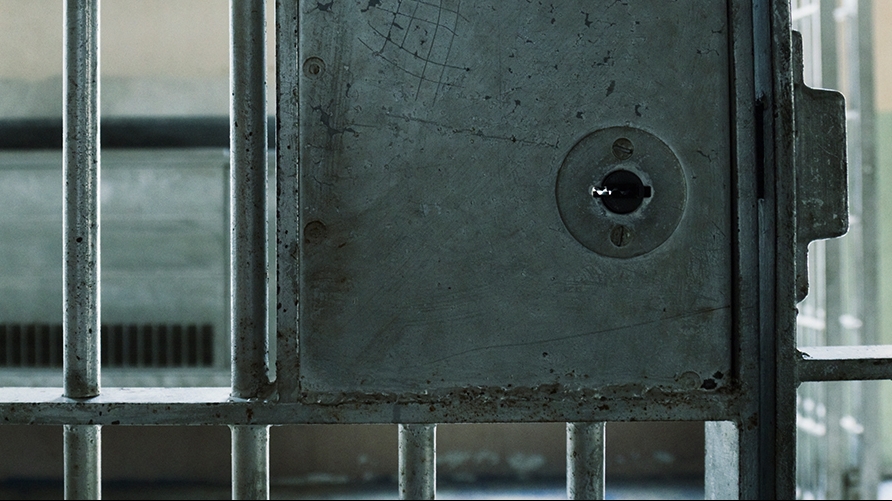By Chip Brownlee
Alabama Political Reporter
MONTGOMERY — The Senate version of the bill authorizing the Alabama Prison Transformation Initiative will be considered by the Senate Judiciary Committee on March 1, the bill’s sponsor said Thursday.
The plan would authorize the Department of Corrections to issue an $800 million bond to construct three new 4,000-bed men’s prisons and a new women’s prison.
Senate Judiciary Committee Chairman Cam Ward, R-Alabaster, said he wanted to have time to gather more feedback on the bill as it currently stands before bringing it before the Judiciary Committee for review.
“I want to have time for both sides of the aisle to have input on it,” Ward said. “I don’t want to rush. I want to make sure that everyone who has concerns feels like their concerns are being addressed before we ever get started.”
It will likely be the only bill on the Committee’s agenda that day, he said.
The prison construction plan — which would consolidate 13 of Alabama’s 17 aging men’s prisons into three newly constructed prisons — is the brainchild of ADOC Commissioner Jeff Dunn and is Bentley’s top priority during this legislative session.
Ward filed the 2017 version of the prison construction bill last week. The legislation was written in the Governor’s Office and Ward is sponsoring it unchanged, he told APR.
The bond would end up costing the State about $1.5 billion over the 30-year repayment period. The Department of Corrections says operational savings from the new prisons would save the State about $50 million a year — enough to finance the bond’s annual payment.
Not everyone is on board with the project. Last year, a watered-down version of the bill failed in the House.
Several concerns — from the effects on local economies to the overall magnitude and cost of the initiative — held the bill back.
“There are some folks who are concerned about whether we need that many new prisons,” Ward said. “Others are concerned about making sure the savings will actually pay for the bond itself.”
The Department of Corrections got their $50 million savings estimate from an independent study, the Department said. Ward said he has asked the Legislative Fiscal Office, a nonpartisan resource of the State Legislature, to run another estimate.
“I want to make sure that we have an independent analysis of that,” Ward said.
The main issues driving the prison construction plan are overcrowding, prison aging and understaffed and overworked corrections officers, Bentley said during his State of the State Address last week.
“We cannot afford to wait any longer to solve this lingering, difficult and deadly problem,” Bentley said after citing the death of Corrections Officer Kenneth Bettis, who was killed in a stabbing last year at Holman Correctional Facility in Atmore.
“The risks are too great,” Bentley said. “The human toll is too high to wait any longer. If you think that we can’t afford the cost of the transformation, then ask one of our corrections officers.”
Many of Alabama’s prisons are reaching two- and three-times capacity, according to the Department of Corrections. The overcrowding, even though the prison population has decreased by 3,000 inmates since 2013, has resulted in deadly violence, which increased over the past year.
On Thursday, an inmate was fatally stabbed at Staton Correctional Facility in Elmore, Alabama, ADOC officials said. The prison there is currently at a 272 percent occupancy rate.
ADOC’s prison construction plan won’t fix all of those problems, though. The new prisons, in combination with the existing prisons that will be left open, will only reduce overcrowding to 125 percent capacity.
But Bentley’s prison construction plan doesn’t get to the root of the problem, according to several legal organizations in Alabama including the ACLU’s Campaign for Smart Justice and the Southern Poverty Law Center.
The issue has brought together conservatives who don’t want to spend a billion dollars on prisons and progressives who want Alabama’s sentencing law’s reformed.
They believe the State needs to take a comprehensive approach by investing in current prison infrastructure and resources along with further reforming its sentencing laws.
“Without further sentencing reforms to decrease the number of people entering prison and policies to expedite the release of prisoners who do not threaten public safety, the State will continue to face the same problems 10 years from now,” said Ebony Howard, the SPLC’s associate legal director. “Alabama can’t afford to make this expensive mistake.”
The compromise plan proposed last year reduced the bond issue to about $550 million and cut the number of prisons from three regional men’s prisons to only two in an attempt to make the plan more amicable for fiscal conservatives.
Even with the changes, the compromise bill failed in the House because there weren’t enough votes to break a filibuster and close debate on the last day of the legislative session.
Organizations across the political spectrum are opposing the bill including Americans for Tax Reform, Right on Crime, the Center for American Progress, the Faith and Freedom Coalition, FreedomWorks and the NAACP.
“Instead of suggesting concrete actions to address prison overcrowding and stark racial disparities, [Alabama] proposes new prisons,” said Bernard Simelton, president of the Alabama State Conference of the NAACP. “The legislature should reject this plan and advance proactive measures to reform our overused and inhumane prison system.”
The prison bill has powerful backers, though, including Ward, House Judiciary Chairman Mike Jones, R-Andalusia, Senate President Pro Tem Del Marsh, R-Anniston, and House Speaker Mac McCutcheon, R-Monrovia.
Their support could push it through the Legislature and then it would surely be signed by the Governor.
Ward said he expects changes and compromises on the bill. Those changes are welcome, he said, but the State needs to act regardless.
“Sitting on our hands and saying that we’re not going to build anything at all, that’s not a good idea,” Ward told APR last week. “We could try to fool ourselves to that, but it’s coming soon where we’re going to have to be forced into building new facilities.”
Email Chip Brownlee at cbrownlee@alreporter.com or follow him on Twitter.




















































You must be logged in to post a comment Login